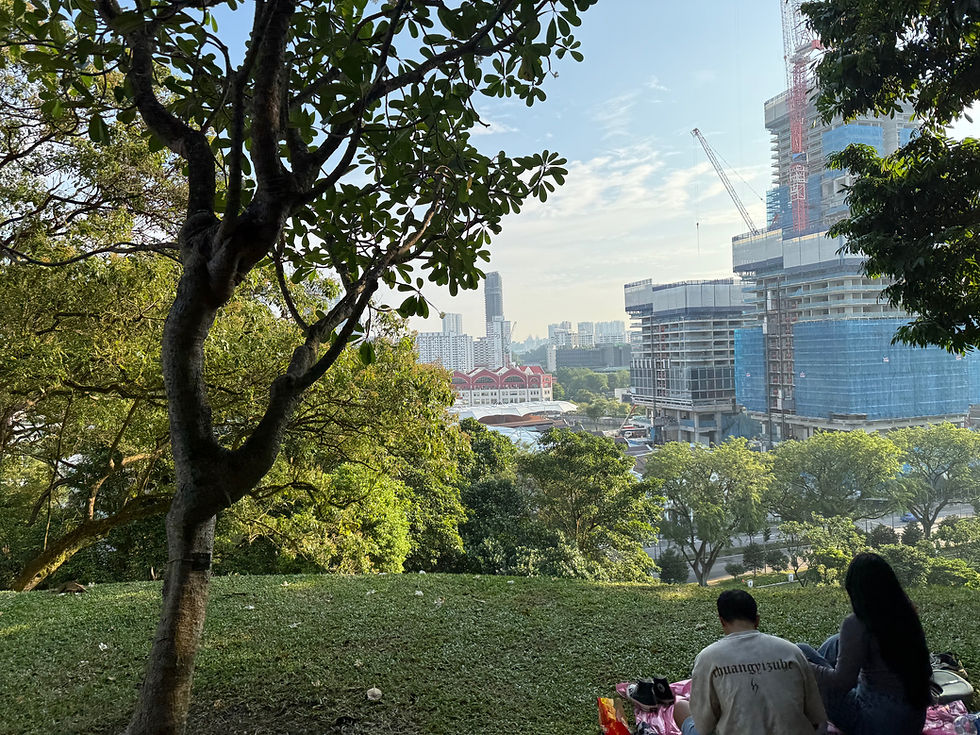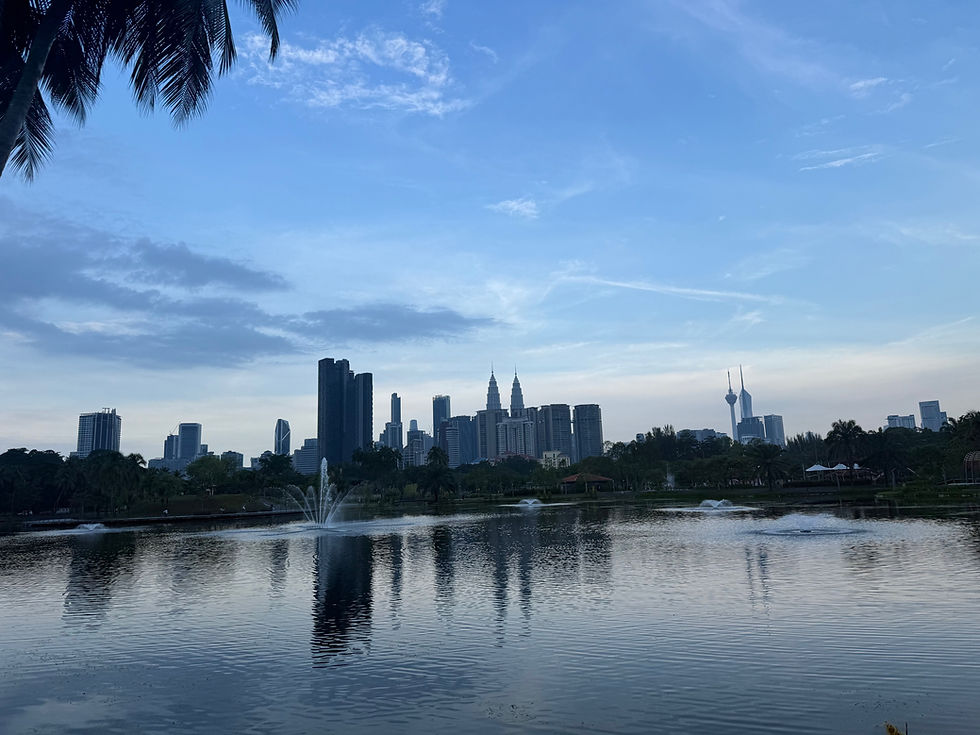A Month Burning Alive: Is El Salvador a Miracle or a Mirage? It's Probably Both
- Nikola Ranick
- Nov 18, 2024
- 3 min read

Throughout my journey (and certainly back in the U.S.), Salvadorans and their compatriots made one thing abundantly clear: They are deeply proud of their country’s recent progress. For those unaware, after its outsider President, Nayib Bukele tried, and failed, to make peace with drug gangs through implicit deals, a heavy weekend of violence several years ago led that administration to crack down in such an aggressive (and effective) manner that 1% of the population is now jailed. Since then, crime has resoundingly collapsed in a manner truly without comparison. El Salvador's overall calm now ranks it among the most safe in Latin America PERIOD.
Bukele's beaming smile on border entry posters reinforced this sentiment; the recent tough-on-crime strategy is a game-changer for a country that was once considered nearly ungovernable. Even the U.S. Embassy, albeit reluctantly, acknowledged the shift: Its latest recommendations did not suggest any area as off-limits. However, it did caution against drug-related arrests and, tellingly, raised concerns about political imprisonment tied to such associations.
Of course, it helps that El Salvador was already relatively wealthy by regional standards—behind only Panama and Costa Rica—and moderately equal, ranking medium on the GINI coefficient (a pretty good ranking for Latin America). Still, the transformation speaks for itself. A cool calm runs through the veins of most cities. At times, El Salvador felt safer than even Panama. One local in Santa Ana told me how, in just a few years, the city center transformed from a no-go zone into a vibrant hub for both locals and tourists.

The trade-off, however, is a stricter security state and a disregard for certain minority rights, both conditions of which do not affect traveling classes. Yet, interestingly, those most vocal about these concerns were wealthier Salvadorans who had the privilege of prioritizing civil liberties over immediate economic or security needs. Don’t get me wrong—this trade-off is substantial, but its perceived weight varies significantly depending on one’s socioeconomic position. It is, after all, always easier to be critical when you can afford to think outside your own pocketbook in the first place.
In terms of regional solutions, El Salvador seemed the most on its way to a healthier normal. This progress reflects broader political evolution since the Civil War. Post-war politics in the 1990s were dominated by the militant left-wing FMLN and the once-authoritarian right-wing ARENA—parties whose histories include civilian massacres and the destruction of national cohesion, only to be followed by the rise of drug cartels. While these old factions remain relevant in down-ballot races—ARENA still dominates affluent San Salvador, and the FMLN holds sway in more rural and underdeveloped eastern areas—Bukele has transcended this duopoly. With his own political brand (and party), he has built a country narrative that overwhelms partisan divides in favor of a criminal justice cohesion alongside modern financial methods. It helps that he himself is loaded, but that does not mean every decision is divine: The state's early bet on crypto is a flop (however, the present surge provides an opportunity for the state).

Despite El Salvador’s modest population, the capital, San Salvador, stands out as a distinct hub of development. While it remains unmistakably a Latin American city, its wealth extends beyond remittances and the informal economy. The city glistens—not just in its malls but in its overall infrastructure, benefiting the general populace and even less affluent areas. As I walked through Parque Juan Jose Canas, I noticed a hint of industrial decline akin to Tegucigalpa, but it was minimal in comparison.
However, this confidence in San Salvador comes with a tinge of arrogance. Much like Costa Ricans, San Salvadorans seem acutely aware of their city’s special status and aren’t shy about flaunting it. This pride reaches new heights in places like its new National Library, funded through a Chinese partnership. This is another prime example of El Salvador’s new financial dynamism. This is a strategic balancing act, courting global powers in a way reminiscent of Serbia.

What intrigues me most, though, is the divide between San Salvador and the rest of the country. Will sustained security strengthen national identity or exacerbate cleavages by concentrating development and authority in the capital? As for its semi-authoritarian state: Will it remain true to its principles of democracy or tilt towards ineffectual autocracy a la Ortega's Nicaragua? Only time will tell, but I hope to return to see how it unfolds.




Comments